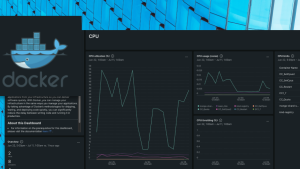Observability is the capability to understand the internal state of a system by examining its external outputs. In the context of large-scale infrastructure systems, observability provides a lens through which you can monitor, analyze, and troubleshoot various components, from servers to microservices. New Relic offers a comprehensive solution for this, providing flexible, dynamic observability of your entire infrastructure, whether it's in the cloud or on dedicated hosts.
Navigating the labyrinth: Challenges in large-scale systems
What are large-scale infrastructure systems?
Large-scale infrastructure systems refer to the complex, interconnected networks of servers, databases, and other resources that power modern businesses. These systems can span multiple geographic locations and often include a mix of on-premises and cloud-based solutions.
The sheer scale and complexity of these systems make them challenging to monitor and manage. Issues can arise from anywhere—be it a faulty server, network latency, or even software bugs.
Complexity is the enemy of stability. The more complex a system, the harder it is to understand and manage, leading to increased operational overhead and a higher likelihood of failures.
Your roadmap to simplicity: Observability strategies
Pinpointing issues with laser focus
Observability tools can help you quickly identify the root cause of issues by providing a holistic view of your infrastructure. This enables faster resolution and minimizes downtime. New Relic allows you to query your data to drill down into your infrastructure events and build custom dashboards that you can share with your team.
Capacity planning: The art of resource optimization
With observability, you can understand how resources are being utilized, allowing for more accurate capacity planning. This ensures that you neither over-provision nor under-provision resources, optimizing costs. New Relic infrastructure monitoring tools offer a range of cloud integrations for Amazon, Azure, and Google Cloud Platform, making it easier to plan capacity across different cloud providers.
Breaking down silos: Enhancing team collaboration
Observability fosters a culture of transparency, making it easier for cross-functional teams to collaborate. When everyone has access to the same data, resolving issues becomes a collective effort. The New Relic Events page allows you to track config changes, restarts, SSH sessions, and other key event changes in real time, ensuring that your monitoring never lags behind reality.
Incident response: Turning chaos into order
Observability can be integrated into your incident response strategy, providing valuable data that can be analyzed during post-mortem reviews to prevent future incidents. New Relic allows you to create, view, or update alert settings directly from the relevant infrastructure chart, making it easier to respond to incidents.
Best practices: Your toolkit for mastering observability
- Choosing the right observability tools: Not all tools are created equal. Choose tools that offer comprehensive monitoring, are scalable, and integrate well with your existing systems. New Relic offers a wide range of infrastructure monitoring capabilities, including Kubernetes and Pixie integrations.
- Leveraging automation for observability: Automate repetitive tasks like data collection and anomaly detection to free up human resources for more complex problem solving. New Relic infrastructure agents for Linux, macOS, and Windows operating systems can be installed quickly to start collecting data.
- Creating a culture of observability: Observability should be a shared responsibility. Educate and train your team to use observability tools effectively. New Relic's guided install makes it easy to get started and discover applications and log sources in your environment.
- Understanding the limitations of observability: While observability can provide deep insights, it's not a silver bullet. Understand its limitations and complement it with other strategies for a holistic approach.
Microservices: The double-edged sword
Microservices infrastructure refers to the architectural style where an application is composed of small, loosely coupled, and independently deployable services. Managing microservices comes with its own set of challenges, such as service discovery, load balancing, and fault tolerance. The decentralized nature of microservices makes traditional monitoring approaches less effective.
Observability provides granular insights into each microservice, making it easier to monitor, troubleshoot, and optimize them individually and as a part of the larger system. The New Relic Kubernetes cluster explorer gives you a powerful and innovative solution to the challenges associated with running Kubernetes at a large scale.
Scaling your empire: The art and science of infrastructure scaling
Scaling infrastructure isn’t just about adding more resources. It involves optimizing the existing setup, ensuring data consistency, and maintaining high availability and resilience.
Observability allows you to monitor system performance in real time, helping you make informed decisions about when and how to scale. It also provides data that can be used to automate scaling actions. New Relic cloud platform integrations with Amazon, Google Cloud Platform, and Microsoft Azure make it easier to scale your infrastructure across multiple cloud providers.
The final word: New Relic is your go-to for observability
Observability is crucial for reducing complexity in large-scale infrastructure systems. It provides the insights needed for effective monitoring, management, and scaling. The New Relic comprehensive observability platform is the ideal solution for implementing these strategies. From monitoring microservices to scaling your infrastructure, New Relic offers the capabilities you need for effective management.
次のステップ
After diving deep into the complexities of large-scale infrastructure systems and how observability can be your guiding light, it's time to take action. New Relic offers a comprehensive suite of observability capabilities designed to reduce complexity and make your life easier. From monitoring microservices to scaling your infrastructure, New Relic has got you covered.
Ready to simplify your large-scale infrastructure? Unlock the power of observability with New Relic. Sign up for free today.
本ブログに掲載されている見解は著者に所属するものであり、必ずしも New Relic 株式会社の公式見解であるわけではありません。また、本ブログには、外部サイトにアクセスするリンクが含まれる場合があります。それらリンク先の内容について、New Relic がいかなる保証も提供することはありません。


